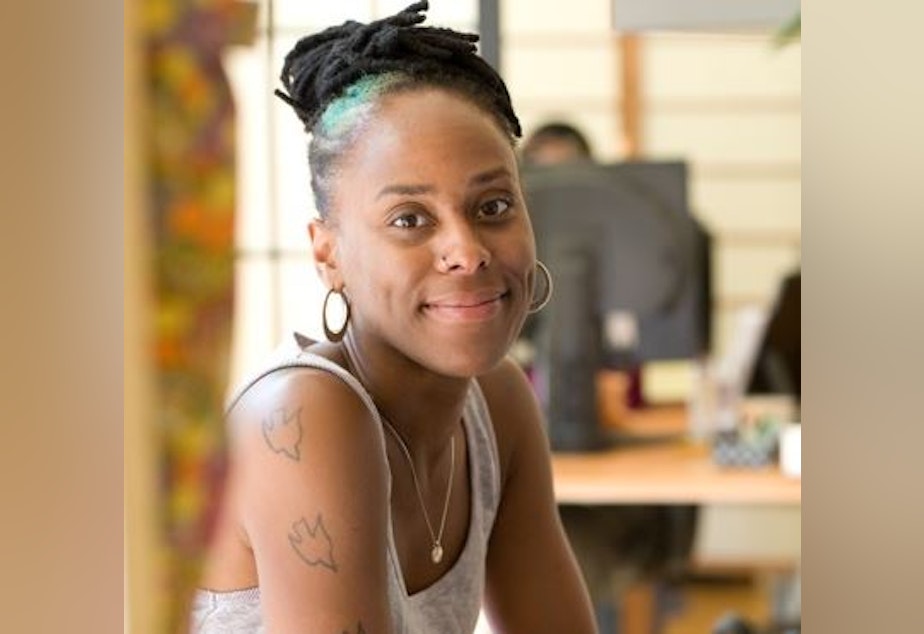Fighting For Arts: 'All Young People Deserve To Sing'

Once upon a time, when you were young, you probably painted pictures, sang songs and danced yourself dizzy.
Many artists and arts educators believe that making art is second nature to humans. And they believe it helps kids learn. But somehow, by the time children reach their teens, many lose their enthusiasm for creative activities. Experts say that lack of arts curriculum in schools may be to blame.
The City of Seattle, the Seattle Public School District, the Seattle Foundation and a host of nonprofit community-based arts organizations are trying to change that with the Creative Advantage.
"It's not a program," says Lara Davis, arts education manager for Seattle's Office of Arts and Culture.
Instead, she calls Creative Advantage a promise that certified arts educators will be in every Seattle school by 2020.
Sponsored
"Creativity should show up in every subject matter, because that's what engages students," Davis says.
Davis is passionate and enthusiastic when she talks about arts education. But in this era of standardized testing, scarce resources are devoted to math, science and reading. That's despite the wealth of data that shows kids who study the arts develop creative problem solving skills, discipline and self-confidence.
In Seattle, Parent Teacher Association groups in more affluent neighborhoods have raised money to hire art teachers for their kids’ schools. But in other areas of the city, those with higher numbers of immigrant, minority and low income residents, the PTAs don't have that well to draw from.
For Davis and other arts education advocates access to certified arts teachers is about social justice as much as it is about learning to draw or play an instrument.
"All young people deserve to sing," Davis says.
Sponsored
In a recent article for Americans for the Arts, Davis wrote that integrating arts into public school classrooms takes more than PTA fundraisers or ballot measures. It requires buy-in from everyone, from the teachers to the school district to community at large.
Creative Advantage has been in place for only about a year; a research firm has been hired to track its effectiveness. So far, Davis says more than 1,500 school children have access to music teachers than before the partnership was formed.
"That's a really big deal," she says, "because that helps to create access for those students in middle school and high school."
The City of Seattle has worked on this partnership with the public schools for several years. The Wallace Foundation awarded them $1 million grant for planning. Unfortunately, Seattle didn't get the money it needed to implement those plans.
Davis herself is a musician, but she doesn't have much time for her own art these days. She devotes most of her energy to kids, and the work clearly ignites her passion. Davis talks a mile a minute about Creative Advantage, about arts education, and walking what she calls the minefield of implementing arts programs in Seattle.
Sponsored
Her efforts have been noticed. Americans for the Arts will honor Davis as an emerging arts leader in a ceremony on June 12th.
It will be a moment for reflection, then it’s back to work.

